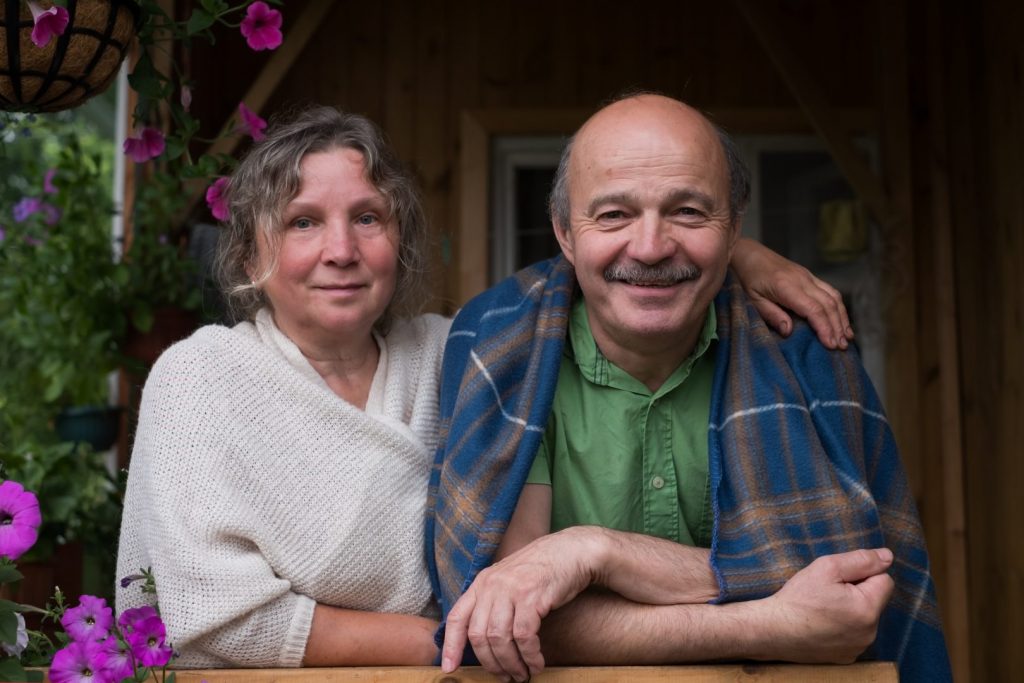
This couple stands on their porch in front of their long-term or forever home, and it’s clear to see how they esteem their home and get along well with it
Over our lifetimes, we have many relationships. Some are long-term, some much shorter. Some are memorable for their positive value, and others are less positive. Regardless, relationships leave an impact on us.
Typically, when we think of relationships, personal ones come to mind. Friends, neighbors, aunts and uncles, parents, siblings, grandparents, coaches, mentors, teachers, and others known to us are the foundation of relationships we form in life.
However, there are less personal but still very memorable relationships that we have such as a school we attended, a favorite restaurant or coffee shop that we visited often, a car that we really enjoyed driving and regarded almost as a member of the family, and a home we were fond of living in as well as our current one.
As people are aging in place and identifying their permanent, long=term or forever home, its essential that they have a positive relationship with their home. They are going to be in that home for many years so they need to get along well together. People do not need to have any kind of conflict going on with their home. Their homes need to serve them well and be nice to them.
Of course, there is nothing in an outward sense that someone’s home can do for them to enhance their lives, but there are many attributes it can have which help people enjoy their space more, function within it well, and generally be happy that they have chosen this particular home as the one to remain in.
Sometimes, like in a dating experience, people will examine several homes and possibly even occupy many of them in their lifetimes before deciding on the one they want to label as their forever home. Sometimes, it’s love at first sight and they know right away that this home is the one for them long-term, regardless of how old they were at the time and whether they had lived in a previous home on their own or not. Occasionally, a home will sort of grow on someone, meaning that they liked it well enough when they purchased it but have come to really appreciate it as the years have gone by.
There also are some plodders who live in a home, not particularly liking or disliking it, that they really don’t love but sort of tolerate. They go about their daily activities in their home and come and go, but they are missing out on a very important aspect of living in their home – that of having a great relationship with their home.
Can our homes tell if we love them? Maybe not, but try hating them and see where that takes us.
Why do we feel the way we do about our homes? One reason could be that we selected it to do what we needed at the time but also saw the potential in it for adapting to us over time. We saw how we could make some simple modifications or updates, how we could reconfigure space if that became necessary, and generally how we could enjoy growing older in that home and having it continue to meet our needs.
Some people have not found their forever home yet. They have selected their present home or others they have occupied because it met a need at the time – close to their children’s school or in the school attendance area they wanted to be in, large enough for raising a family, in a neighborhood they liked, easy commuting distance to where they work (or did), and other factors. Over time, that criteria can change and the need for another home may appear. On the other hand, they may come to the realization that they have had such an emotional attachment to their current home and that they have shared so much together that they don’t want to say good-bye, and so they stay.
Regardless of why or how someone selects their forever home, it’s only natural that they develop some type of attachment to their home. We do this with many things we own, from clothing, jewelry, ars, sporting equipment, books, furniture, and more. Arguably our homes account for the biggest non-personal relationship that we have in our lives. Therefore, we need to show them the respect, love, and care that we would bring to any serious or long-term relationship.
We need for our homes to be nice to us, to nurture us as well as they can, and especially not to create issues for us or get in our way. We should be nice to our homes, and in return, they should be nice to us. It’s a mutual relationship.
